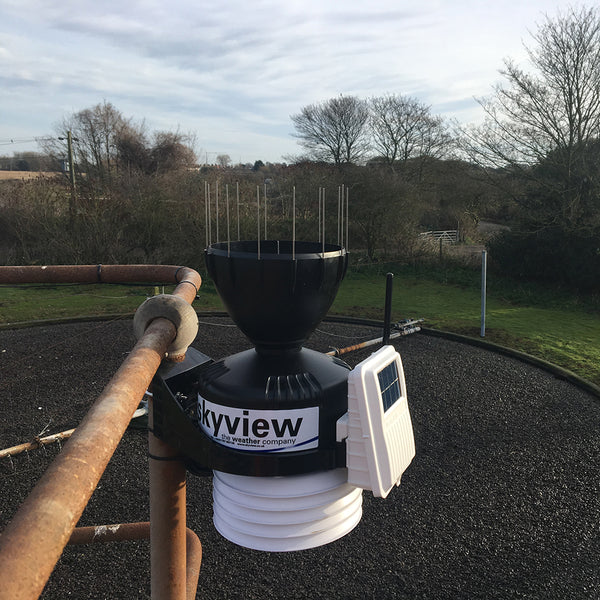
9 Church Field Road, Sudbury, Suffolk, CO10 2YA
The world's water is a finite and precious resource. It is continually used and reused in the water cycle and with over 20 companies supplying water in England and Wales, the safe treatment and recycling of water is paramount. Skyview's weather monitoring equipment allows authorities to properly manage treatment sites and plants, protect resources and minimise disruption to the surrounding community.
UK water companies must adhere to stringent guidelines, including the EU Water Framework Directive, which sets out precise requirements with regards to environmental pollution. Weather monitoring for wastewater sites helps determine the potential for odour nuisance, set odour control performance criteria, and develop odour mitigation measures.
“Meteorological monitoring can identify when dispersion conditions are poor, or help to interpret exposure or impact monitoring data. Particular attention should be paid to the location of instruments. Knowing when dispersion conditions are poor can also inform decisions to implement additional short-term odour control contingency measures. The OMP should demonstrate that poor dispersion conditions can be identified and dealt with.”
H4 Odour Management: How to comply with your environment permit
News + events
In order to deodourise offensive odours effectively, the water and wastewater sector needs access to accurate, real-time wind speed and wind direction data. A Skyview-installed weather monitoring system with supporting software, allows site operators to record the wind direction and air temperature and to assess the risk of pollution to local and wider communities to inform decision-making for site activities.
A centralised data service delivered via Skylink-Pro increases accessibility to key information along with the ability to analyse data comprehensively using unique Skyview software.
Finally, regular service visits by Skyview ensure that all monitoring equipment is functioning correctly to avoid costly fines.
)
"Skyview Systems are great. Steve was very good the whole way through the install process and aftercare and servicing. The windrose data is invaluable to feedback to our customers and regulator when dealing with odour issues from site."
Gavin Naylor – Anglian Water
The water and wastewater industry has a host of legal requirements to comply with to demonstrate environmentally sound practises.
The Chartered Institution of Water and Environmental Management (CIWEM) highlights that “statutory nuisance” provisions of Environmental Protection Act 1990 should lead to acceptable (and consistent) levels of control over odour from wastewater treatment works being required by regulators and achieved by operators.
The level of control applied is to achieve compliance with a standard of ‘no significant pollution’ as required by the Integrated Pollution Prevention and Control (IPPC) Directive.
The legislation under which odours are currently controlled in the UK are as follows:
Environmental Protection Act;
Town & Country Planning Act;
Environmental Permitting Regulations (England & Wales);
Pollution Prevention and Control Regulations; and
Waste Management Licensing Regulations (Scotland and Northern Ireland) (PPC) (WML).
The legal requirement for an efficient Odour Management Plan for water and waste water authorities ensures that any potential for pollution is monitored, minimised and managed effectively.
The Environment Agency: H4 Odour Management - How to comply with our environmental permit states “ … to represent conditions for an “average year” hourly meteorological data for a period of at least three, preferably five years should be used. Data can be sourced from … a representativemeteorological station; … (or) your ownweather station if you have one on the site”, detailing that “meteorological monitoring can identify when dispersion conditions are poor, or help to interpret exposure or impact monitoring data.”